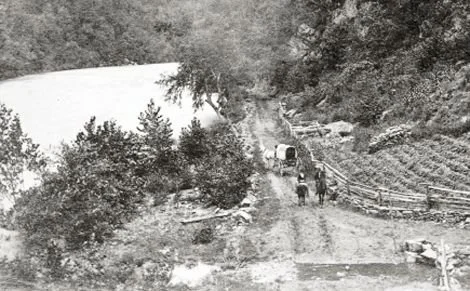Hi there, my name is Greta Fink and I'm a proud resident of WNC. I've been working as a realtor in this area for the past five years, specializing in land and listings.
As a realtor, my top priority is to provide my clients with exceptional service and a stress-free experience. Whether you're buying or selling a property, I'm dedicated to helping you achieve your goals and making the process as smooth as possible.
One of the things I love most about my job is the opportunity to help people find their dream home or investment property. I take the time to listen to my clients' needs and preferences, and I work tirelessly to find the perfect property that meets their unique criteria.
In addition to my expertise in real estate, I also have a deep understanding of the Hendersonville area and its surrounding communities. This knowledge allows me to provide my clients with valuable insights and advice on everything from schools and amenities to local market trends.
When I am not helping my clients I enjoy homesteading, gardening, raising chickens, and creating a unique space for my family to thrive.
Whether you are in need of a real estate agent or enjoy a simple life I would love to connect.
We at Turnpike Realty are thrilled to welcome you to our community! As one of the premier real estate agencies in the area, we are committed to providing exceptional service and helping you find the perfect home or property.
Our agency takes great pride in our community and its rich history, which is why we chose the name Turnpike Realty. The Old Buncombe Turnpike played a significant role in the development of our community, and we wanted to pay homage to this important piece of our past.
The Old Buncombe Turnpike was a major transportation route that connected our area to the rest of the country in the early 19th century. It was a vital link for goods and people, and it helped to fuel the growth and prosperity of our community. Today, the old turnpike is a reminder of our heritage and a symbol of our resilience and determination.
At Turnpike Realty, we believe that our community's history is an essential part of its character and charm. We are committed to preserving and celebrating this heritage, and we are proud to serve as ambassadors for our community.
So, whether you are looking to buy, sell, or rent a property, we invite you to experience the warmth and hospitality of our community and the expertise of our team at Turnpike Realty. We look forward to helping you achieve your real estate goals and welcoming you to our community.
The Old Buncombe Turnpike
The Old Buncombe Turnpike was a crucial transportation route in western North Carolina during the early 1800s. It was a 60-mile-long road that connected Greenville, South Carolina, to Asheville, North Carolina. The turnpike was constructed between 1820 and 1827, and it was named after the county it passed through, Buncombe County. The road was built to provide a faster and more efficient route for travelers and merchants who wanted to transport goods from the South to the North.
The construction of the Old Buncombe Turnpike was a significant event in the history of western North Carolina. Before the turnpike, the only way to travel between Greenville and Asheville was through the rugged Appalachian Mountains, which made transportation difficult and time-consuming. The construction of the turnpike made travel much easier, and it helped to open up western North Carolina to trade and commerce. The road was also used by pioneers who were moving westward in search of new land and opportunities.
The Old Buncombe Turnpike played a crucial role in the economic development of western North Carolina. The road was used to transport a variety of goods, including livestock, crops, and manufactured goods. The Turnpike was also used by tourists who were drawn to the natural beauty of the region. The road was lined with inns, taverns, and other businesses that catered to travelers. The Old Buncombe Turnpike remained an important transportation route until the mid-1800s when the railroad began to replace it as the primary means of transportation.






